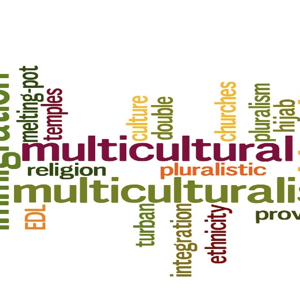We live in a multicultural society. It has always been so, but only in recent years have we said so. In the past, the recognized cultures in the United States were primarily European in origin – Irish, German Scandinavian, Italian, etc. Also present but unrecognized was the Native American cultures and the culture of slavery. Now that there are numerous cultures within our communities from Latin America, Asia and Africa, we are having to deal with the reality of living and working with people who are different than we are.
Multiculturalism is understood to be the process of recognizing, understanding and appreciating cultures other than one’s own. That means we must look at our differences, not only at our similarities. Our tendency has been to hide or brush over differences, look for points of agreement, and embrace processes and procedures that make us all appear to be the same.
Understanding differences requires serious study and personal examination. It is very important that we learn all we can about the cultures within our society. Our learning must go beyond the stereotyping we see on TV or read in newspapers. Personal contact with people of other cultures for serious conversation and sharing about their lives, cultural mores and experiences is most helpful. If such is not available then books, videos and various resources can help us gain a better understanding.
When we move to the stage of dealing with multiculturalism, must move beyond theory into practicing acceptance. This is where things get difficult if you insist there is only one way something can be done or can look. Accepting differences does not imply total understanding. It does mean you try to avoid making quick, thoughtless judgments. You must have a solid sense of your own self-worth and understand your own culture if you are to accept someone else’s. This means you have to address your own prejudices, biases and racism, and perhaps change some of your own ideas and perceptions. You also must work on your communication and interpersonal skills so that legitimate differences can be discussed in an open and safe environment.
To value another culture and the contribution it makes or can make to society is the ultimate goal in living in a multicultural society. Differences help to enrich our communities and our churches. Within our churches our understanding of the Gospel too can be challenged as we discuss faith and beliefs among Christians from another culture. The Holy Spirit is at work in the midst of many Christian communities in many cultures. The faith is not expressed the same by all either in word, deed, or song. Value these differences. Learn from each other Expand your understanding of God at work in our world.
We are living in a multicultural society. By the year 2030 it is predicted the majority of people living within the United States will be of non-European descent. It is imperative for us and our children that we become people who move away from fearing differences and work toward the goal of valuing our differences. May God be our guide as we attempt to build a society based upon acceptance and respect of each person and each culture.
Joyce D. Sohl, Laywoman-in-Residence
